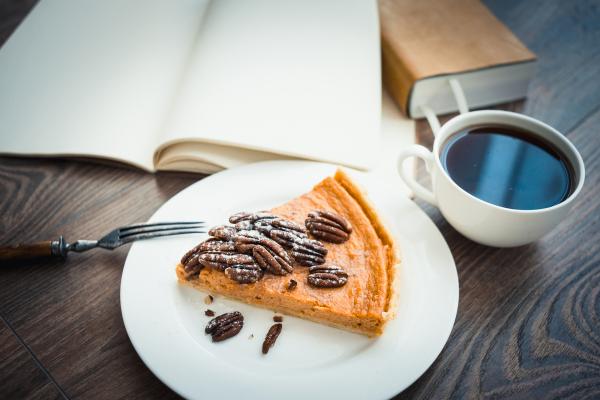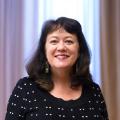Summer’s gone, and with it the breezier reading of the beach and the hammock. In its place comes a more serious reading list — more literary, less lightweight. Here are seven books where religion plays a role — though not a proselytizing or a self-help one — to read between the falling leaves.
FICTION
The Wonder by Emma Donoghue (Little, Brown, and Co.)
Emma Donoghue has a penchant for claustrophobic novels. Her breakaway hit, Room, was about the intimate — and somewhat spiritual — relationship between a mother and son held captive in a tiny space. This new book also takes place primarily in one room — the cramped bedroom of an 11-year-old Irish girl who has drawn international attention by claiming she is surviving only on her Catholic faith and “manna from heaven.” Speaking to NPR’s Scott Simon, Donoghue, who is originally from Ireland, said, “I didn’t really want to focus purely on Catholicism. I’m very interested in how idealistic young people can get caught up in all sorts of systems of extreme belief, you know, whether it’s cults or whether it’s suicide bombers. And there are so many examples today of how the kind of wonderful zealousness and unquestioning loyalty of young people can be harnessed by all sorts of insidious powers.”
Faith factor: The starving girl at the heart of the story becomes the focus of a tug of war between the church and a skeptical British nurse hired to “watch” her.
What the critics say: “Donoghue’s engrossing novel is loaded with descriptions of period customs and 19th-century Catholic devotional objects and prayers,” Publishers Weekly’s anonymous reviewer said in a starred review. “(And) asks daring questions about just how far some might go to prove their faith.”
Holy Rule by Mary Frances Coady (Inanna Publications)
This is a first novel from the Canadian author set among the nuns and adolescent girls of a Canadian Catholic school in 1958. The plot focuses on a power play between the nuns and their charges as the pope lies dying in faraway Rome.
Faith factor: Nuns. Young girls. And the spiritual warfare between them as the 1960s loom.
What the critics say: Critics have generally loved Coady’s previous nonfiction works, which have looked at the lives of Thomas Merton, Evelyn Waugh, and some notable Canadian Catholics.
Woman of God by James Patterson and Maxine Paetro (Little, Brown and Co.)
OK, one beach read: With 325 million copies of his books sold, James Patterson is a best-seller machine, if not always a critic’s darling. He has seven titles slated for release between now and Christmas. But this is the one that will likely be unavoidable in airports, on beaches, and at the gym. It features the usual Patterson blend of murder, conspiracy, money, and sex, and also involves the possible election of the first woman pope.
Faith factor: Did we mention the plot has something to do with the first woman pope?
What the critics say: The book won’t be published until Sept. 26, so here’s a sample of previous Patterson reviews: “A terrible writer but he’s very successful” and “this isn’t ‘Moby Dick.”
MEMOIR
Greetings from Utopia Park: Surviving a Transcendent Childhood by Claire Hoffman (HarperCollins)
An inside look at life among the transcendental meditation devotees of Maharishi Mahesh Yogi on one of his farms in Iowa from a young journalist who eventually left her shattered family behind there.
Faith factor: The Maharishi was both notorious and famous — one of the leading proponents of TM, or transcendental meditation, guru to the Beatles, the Beach Boys, and other stars, and an alleged womanizer (The Beatles’ “Sexy Sadie” is supposed to based on the Maharishi’s pursuit of Mia Farrow).
What the critics say: The Kirkus Reviews said, “A clear-eyed critique that generously accounts for humanity’s ‘profoundly sincere and motivated’ quest for happiness and peace.” Authors Reza Aslan and Lawrence Wright praised it.
The Latter Days: A Memoir by Judith Freeman (Pantheon)
Here’s one we missed in our summer roundup, so we’re assigning it as the leaves fall. Judith Freeman was born into a solid Mormon family in Utah, but after marrying at 17 and divorcing at 22, she found herself in love with her small, ill son’s heart surgeon.
Faith factor: The story charts Freeman’s path from dutiful Mormon wife, mother and daughter to an independent thinker and writer seeking a voice of her own.
What the critics say: The Chicago Tribune named this book to its “30 Books You Should Read This Summer” list, and the author Ursula K. LeGuin called it “a brave and valuable book.”
NONFICTION
Village Atheists: How America’s Unbelievers Made Their Way in a Godly Nation by Leigh Eric Schmidt (Princeton University Press)
Schmidt, a professor of religion and politics at Washington University in St. Louis, looks at the long, troubled relationship between U.S. nonbelievers, both famous and infamous, with their religious neighbors and counterparts. The book revives the forgotten lives of American nonbelievers like atheist “preacher” Samuel Porter Putnam, cartoonist Watson Heston, blasphemer Charles B. Reynolds, sex reformer Elmina D. Slenker, and Robert Ingersoll, once the most famous man in America and now largely unknown.
Faith factor: Nonbelievers and the religiously unaffiliated are a growing portion of the American population, but this book shows they have always been a part of the American landscape. “At the time of the Revolution, say, the best guesses on fully paid-up (church) members is like 15 percent of the population,” Schmidt recently told The Atlantic. “Over this longer term, it’s quite possible that the nones have a lot more company than we often think.”
What the critics say: Library Journal — not known for its effervescent reviews, said, “Schmidt offers an entertaining yet educational read for those interested in America’s secular history and the struggles many faced to become vocal freethinkers without persecution.”
Got something to say about what you're reading? We value your feedback!

